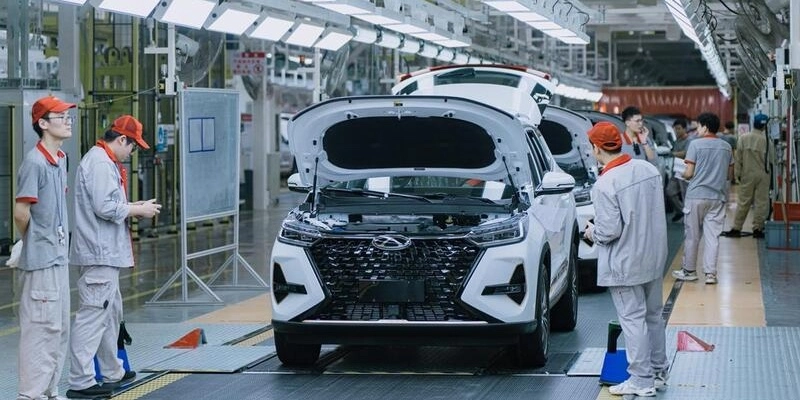In April, Chery‘s international vice president, Guibing Zhang, arrived in Barcelona to close the agreement with Ebro with the aim of producing 50,000 vehicles per year in 2027 on the former Nissan company land in the Zona Franca.
This initial project not only involves the hiring of approximately 150 workers, who are currently being trained, but it is also projected to recover up to 1,250 jobs.
This would complete the plant’s reindustrialization process, which began in December 2021, when the Japanese automaker decided to abandon the facilities.
What was the reaction of the local industry?
“There are mixed feelings,” Alberto Molina Aracil, Director of Future Mobility Learning at MSX International, tells Mobility Portal España.

On the one hand, various companies see the arrival of Chery as an opportunity to revitalize the Free Trade Zone and strengthen the local value chain.
Especially if you take into account that this will further consolidate Catalonia as a leader in the automotive sector.
The community has emerged as a hub of innovation due to its rich caliber of talent and creativity, as well as the ecosystem it forms thanks to its technology centers, universities and technology companies.
In this way, Chery’s project not only reindustrializes a space that had been left inactive, but also reactivates local labor and knowledge.
How?
With the help of Ebro, “which has Spanish DNA and know-how”, the Chinese company will carry out the comprehensive manufacturing of the vehicles in Barcelona, from their initial production to their distribution to dealers.
“This strengthens the existing value chain, revitalizes a previously inactive area and benefits the local industry, which translates into wealth for the region,” emphasizes Molina Aracil.
Not only this, but also, the choice of Chery for Barcelona could be seen as an impetus for other foreign firms to consider locating their production in the Autonomous Community.

Meanwhile, a part of the sector perceives this arrival as a threat to local manufacturers.
Specifically, according to the specialist, there is a concern that competition will increase and producers will face new challenges to maintain their market share.
This approach is aligned with the recent announcement by the European Commission, which has provisionally concluded that the electric vehicle value chain in China benefits from unfair subsidies.
According to the regulatory body, this situation poses a threat of economic damage to companies in the European Union.
To address this issue, the introduction of provisional countervailing duties is envisaged from 4 July, under a mechanism to be determined by the customs authorities of each Member State.
The Commission proposes to apply individual duties of 17.4 per cent for BYD, 20 per cent for Geely and 38.1 per cent for SAIC.
Other foreign manufacturers that collaborated in the investigation but were not included in the sample would be subject to a weighted average duty of 21 per cent.
Those producers who did not cooperate in the study would face a 38.1 per cent duty.
In this regard, Alberto Molina Aracil emphasizes: “We must have the ability to turn threats into opportunities, not by placing obstacles to our competition, but by surpassing ourselves to stand out from it.”
The expert therefore argues that it is not a question of applying tariffs, but of requiring Chinese manufacturers to establish their factories on the continent, as BYD is doing in Hungary and now Chery in Spain.
“If they want to sell in Europe, they must produce here,” he says.
This not only provides additional value to local businesses, but also makes it easier to compete on a level playing field.
“Those who can solve today’s challenges and threats will be in an advantageous position,” he concludes.






